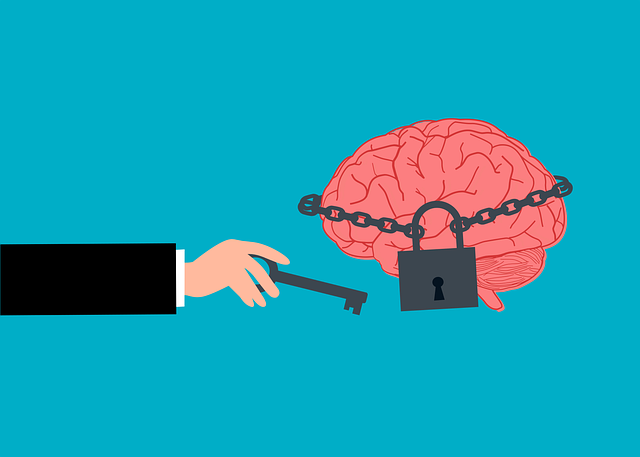Louisville Learning Disability Therapy leverages positive thinking exercises, integrating Empathy Building Strategies and Cultural Competency Training, to empower clients with learning disabilities. Through tailored sessions focusing on strengths, gratitude practices, and negative thought reframing, therapists foster optimism and resilience. Crisis Intervention Guidance equips individuals with coping mechanisms for stress management. Standardized assessments and client feedback measure success, allowing for dynamic strategy adaptations based on diverse needs.
In Louisville, learning disability therapists play a pivotal role in empowering individuals with positive thinking strategies. This article explores the profound impact of positive psychology on learning disabilities, offering a comprehensive guide for therapists. We delve into designing tailored exercises, practical implementation strategies, and measuring success. By integrating these evidence-based practices, Louisville therapists can enhance therapeutic outcomes, fostering growth and confidence among clients with learning challenges.
- Understanding the Impact of Positive Thinking for Learning Disabilities in Louisville
- Designing Effective Positive Thinking Exercises for Therapy Sessions
- Practical Implementation Strategies for Louisville Learning Disability Therapists
- Measuring Success and Adjusting Positive Thinking Exercise Protocols
Understanding the Impact of Positive Thinking for Learning Disabilities in Louisville

In Louisville, understanding the impact of positive thinking on learning disabilities is a transformative step in enhancing the lives of those affected. Positive thinking exercises and strategies can significantly improve cognitive abilities, boost confidence, and foster a sense of self-worth among individuals with learning disabilities. Research has shown that cultivating an optimistic mindset can create a ripple effect, positively influencing academic performance, social interactions, and overall well-being.
Louisville Learning Disability Therapy often incorporates positive thinking as a key component in its approach, leveraging Empathy Building Strategies and Cultural Competency Training for healthcare providers. These methods facilitate emotional healing processes, enabling individuals to navigate challenges with resilience and adaptability. By focusing on strengths rather than weaknesses, and using encouraging language, therapists can empower clients to embrace their unique learning styles, leading to improved outcomes and enhanced self-beliefs.
Designing Effective Positive Thinking Exercises for Therapy Sessions

Designing effective positive thinking exercises for therapy sessions requires a tailored approach that caters to individual needs and preferences. At Louisville Learning Disability Therapy, our therapists employ creative strategies to help clients cultivate optimism and resilience. These exercises often involve setting achievable goals, practicing gratitude, and reframing negative thoughts into more positive and constructive ones. Customization is key; each session must align with the client’s unique challenges and progress, ensuring that the exercises are not only engaging but also meaningful.
The integration of communication strategies is vital to make these sessions productive. Encouraging open dialogue allows therapists to understand clients’ perspectives and tailor their approaches accordingly. By promoting mental wellness through positive thinking, healthcare providers can empower individuals to navigate life’s challenges with greater confidence. This holistic approach, combined with cultural competency training for Louisville-based therapists, ensures that every client receives personalized care that respects and embraces their unique backgrounds and experiences.
Practical Implementation Strategies for Louisville Learning Disability Therapists

Louisville Learning Disability Therapists can effectively integrate positive thinking exercises into their practice by employing practical strategies tailored to their clients’ needs. One such approach is incorporating mindfulness meditation techniques, which have been proven to reduce stress and improve focus in individuals with learning disabilities. Therapists can guide clients through simple breathing exercises or body scans during sessions, fostering a sense of calm and mental clarity. This not only enhances their ability to learn but also equips them with valuable tools for managing crises, as mindfulness becomes an integral part of their coping mechanisms.
Additionally, providing Crisis Intervention Guidance is crucial in Louisville Learning Disability Therapy. By teaching clients strategies to navigate challenging situations, therapists empower them to maintain a positive mindset even during difficult times. Incorporating mental health awareness activities into therapy sessions allows individuals to recognize and express their emotions effectively. Through role-playing scenarios and guided discussions, therapists can help clients develop resilience and build a stronger support system, ultimately leading to improved overall well-being.
Measuring Success and Adjusting Positive Thinking Exercise Protocols

Measuring success and adjusting protocols are vital components of effective Louisville Learning Disability Therapy. When implementing positive thinking exercises, therapists must establish clear outcomes to evaluate progress. These might include improved mood management skills, enhanced coping strategies, or increased overall well-being, as gauged through standardized assessments and client feedback. Regular monitoring allows for a tailored approach, where successful techniques are reinforced and areas needing improvement are addressed.
In light of the above, a Mental Health Policy Analysis and Advocacy perspective is beneficial. By analyzing community outreach program implementations, therapists can identify what works best for diverse populations. This knowledge enables them to adapt positive thinking exercises within Louisville Learning Disability Therapy, ensuring optimal outcomes. Continuous evaluation and adjustments foster a dynamic process that supports clients in their journey towards better mental health and effective mood management.
Implementing positive thinking exercises in Louisville learning disability therapy can significantly enhance cognitive abilities and overall well-being. By designing tailored activities, therapists can create an empowering environment, fostering growth and resilience among individuals with learning disabilities. Practical strategies outlined in this article provide a roadmap for successful integration, allowing Louisville therapists to measure progress and adapt protocols as needed. This approach ensures that positive thinking becomes a powerful tool, not just in therapy sessions but as a lasting habit, improving the lives of those with learning challenges.














